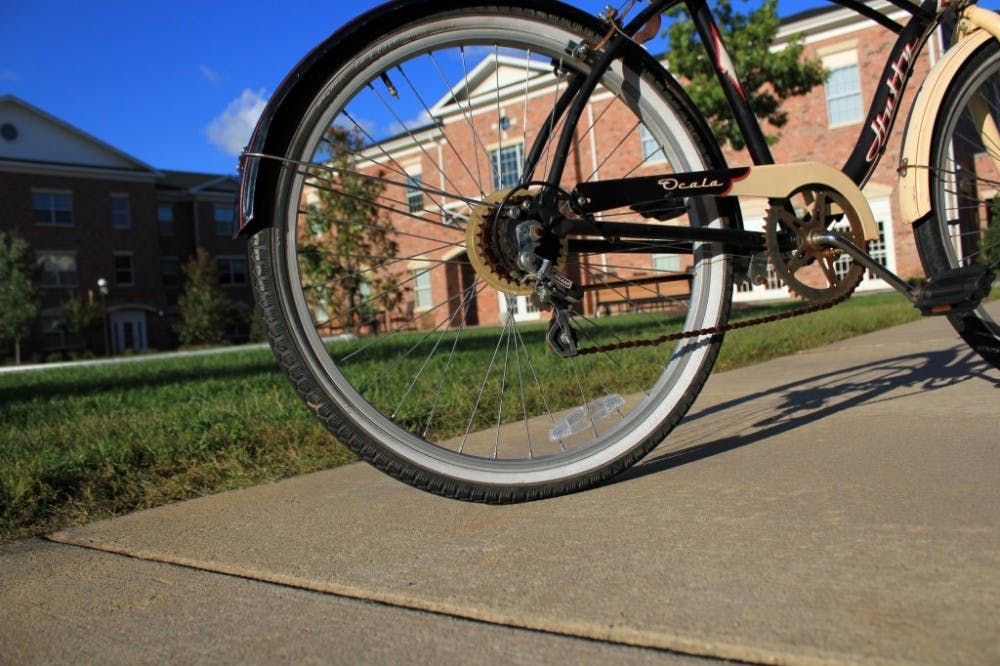Rachel Wilson’s bike has been stolen three times since she arrived on campus almost four years ago. Though Wilson, a senior, said she typically used a coil bike lock to secure her bike to racks, she found the problem of people snatching bicycles that aren’t theirs to be a recurring issue for her and other students with bikes.
“I plan my days with the expectation that I’ll have my bike to get me around campus, and if it’s not there, I’ll be late for class or meetings,” Wilson said.
According to Vickie Moehlman, a captain at Campus Safety and Police, 30 bike larcenies were reported on campus in 2010. That number went up in 2011, and 43 bikes were reported missing to campus security, although she speculates more are stolen than are reported.
Though campus police were able to recover five of the 43 stolen bikes last year, Moehlman, who promotes crime prevention on campus, said there are several ways for students to ensure the safety of their bikes.
The first: using a U-lock, not a coil lock.
“The bike security industry makes a killing off the (coil) bike chains,” Moehlman said. “They look secure but they’re not. If you cut the plastic tube open, you’ll see that the wire on the inside is just about the size of a clothes hanger wire. We’ve seen students come into our office with a chain lock in their hands that has been cut.”
Registering bikes with campus safety and police, Moehlman said, is another way to prevent theft. Students are encouraged to bring their bikes into the campus security office, where they will receive a registration sticker that can be placed in a conspicuous spot on a bike.
“Most of the time, a sticker that says ‘Elon Police Department’ on it and indicates that the bike is registered is a deterrent for people who are just stealing it to go from point A to point B,” Moehlman said.
Dan Ingle, campus police officer and investigator, said besides taking other people’s bikes for their own transportation, some thieves steal bikes to be re-sold at pawnshops and other locations.
“There are some folks that do that for a living,” Ingle said. “They go from campus to campus taking things, and for some of them, bicycles especially."
When bicycles are reported missing, Ingle said campus police check local pawnshops to see if any were brought there to be sold.
Wilson said she noticed that a common trend for bicycle thieves is to operate on Thursday, Friday and Saturday nights — usually when people have been drinking.
Wilson's bike was stolen for the first time her freshman year from a bike rack outside Virginia. She found her bike several hours later beside Sloan, though her basket had been torn off and left at the Virginia rack.
Last year, Wilson’s bike was stolen from outside Colonnades B and she found it the next morning by Colonnades dining hall without a basket.
The final instance occurred a few weeks later, and when she discovered her bike was stolen from outside Colonnades, Wilson saw the bike racks had been moved and most of the bikes overturned. Wilson said she reported the incident to Campus Safety and Police and drove around campus until she found her bike outside Danieley B.
Since her bike was last stolen, Wilson said she started using a new lock and hasn’t had any more problems.
“I’ve used a metal U-lock since it happened the last time,” Wilson said. “(Since then), I haven’t had any trouble — thank goodness.”


